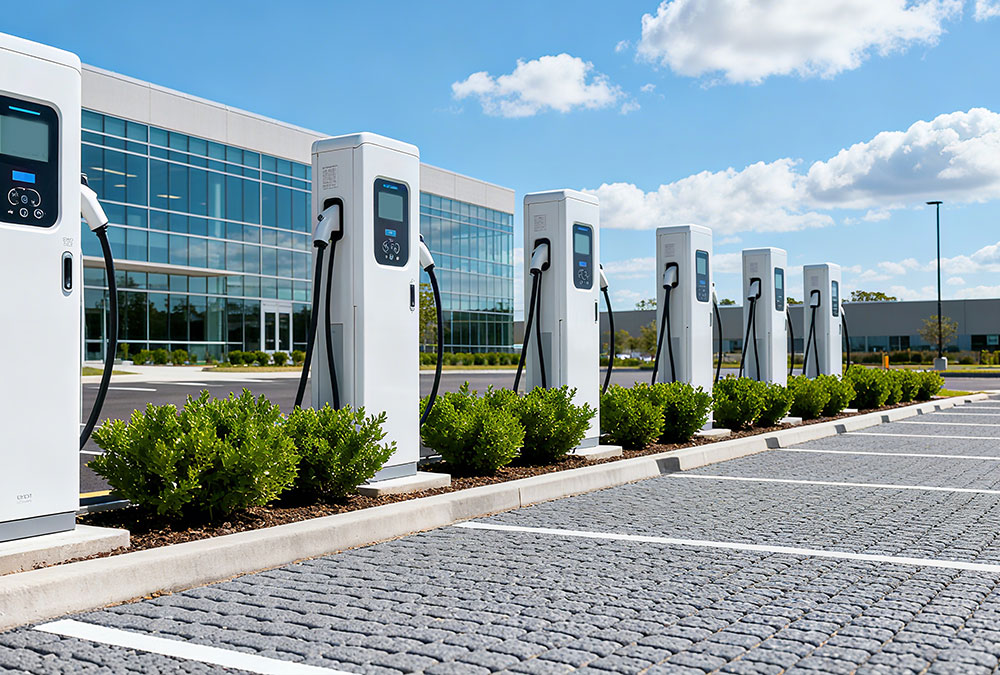
As electric vehicles keep gaining ground worldwide, more and more businesses are realizing something important: installing EV chargers on commercial properties isn’t a luxury anymore — it’s a smart investment for the future.
Whether you run an office building, hotel, shopping mall, apartment complex, or fuel station, offering EV charging adds real value. It attracts new customers, keeps people on-site longer, enhances your brand’s image, and opens a new stream of revenue.
But there’s one big question most decision-makers ask first:
How much does it cost to install a commercial EV charging station — and is it worth it?
This guide walks through every key cost factor — equipment, power infrastructure, installation, and maintenance — plus examples and ROI insights to help you make the right call.
Choosing the Right Type of Commercial EV Charger
Picking the right charger is the first step in managing cost and meeting your customers’ needs. Commercial EV chargers generally fall into three categories: Level 1, Level 2, and DC Fast Charging(Level 3 charging).
A Level 1 charger is the simplest option, using a 120V outlet. It adds about 3–5 miles of range per hour and can take up to 20 hours to fully charge a car. Equipment costs range from $300 to $1,500, but due to its slow speed, Level 1 charging is rarely used commercially — mostly for emergency or temporary use.
Level 2 chargers are the most common choice for businesses. Running on 240V AC, they deliver between 32A and 80A, charging most EVs in 4–8 hours. That makes them ideal for locations where customers stay a while — like offices, shopping centers, hotels, and restaurants.
Depending on the model and amperage, total costs (hardware + installation) range between:
- $700–$2,000 for 48A (≈11 kW) units
- $1,800–$5,000 for 80A (≈19 kW) units
For sites needing ultra-fast turnaround — highway stops, travel centers, or large retail lots — DC Fast Chargers (DCFCs) are the gold standard. They bypass the car’s onboard AC charger and deliver high-voltage DC directly to the battery, adding up to 80% charge in 20–30 minutes.
Here’s what that looks like by power level:
- 100 kW DC charger: $30,000–$40,000
- 200 kW DC charger: $55,000–$65,000
- 250 kW+ DC charger: $65,000–$75,000 or more
However, DC fast chargers demand significant grid capacity and may require dedicated transformers and cooling systems — major drivers of overall project cost.
Key Factors That Affect Total EV Charging Station Installation Cost
While hardware price grabs attention, the real cost comes from everything around it — power upgrades, site work, permitting, and operations. Let’s break them down.
1. Power Infrastructure Upgrades
This is one of the most underestimated costs. Many older properties can’t handle the load of multiple high-power chargers. You may need:
- Transformer upgrades for higher power delivery
- Electrical panel expansion to handle added amps
- Underground cable trenching from the substation to the lot
- Load management systems (EMS) to balance power safely
Depending on site conditions, electrical upgrades can range from a few thousand dollars to well over $100,000.
Example: a gas station adding four 250kW DC fast chargers spent over $200,000 just on power upgrades and transformer installation. Always get an on-site assessment before you budget.
2. Site Preparation and Permits
Excavation, trenching, paving, signage, bollards, and ADA-compliant parking design can add another $2,000–$10,000.
Every region also requires installation permits, inspection, and utility interconnection approval, typically costing $500–$5,000 depending on project size.
3. Economies of Scale
Installing multiple chargers at once saves money in the long run. Bulk equipment orders reduce unit cost, and centralized wiring cuts labor time.
Example:
- A small café installing two Level 2 chargers might spend $15,000 total.
- A large shopping center adding ten Level 2 chargers plus two DC fast chargers might spend $250,000 total, but the per-charger cost is much lower — and the ROI higher.
Commercial EV Charging Station Cost Breakdown
| Category | Typical Range (USD) | Details |
|---|---|---|
| Equipment (per unit) | $300–$75,000 | Based on type and power (AC/DC) |
| Installation & Wiring | $2,000–$10,000 | Labor, trenching, conduit, testing |
| Power System Upgrade | $5,000–$100,000+ | Transformer, panel, cable, grid link |
| Permits & Inspections | $500–$5,000 | Local approvals and utility checks |
| Site Work | $2,000–$10,000 | Pavement, signage, safety bollards |
| Annual O&M | $600–$2,400 per unit | Maintenance, monitoring, software |
| Add-on Features | $1,000–$5,000 | Smart features, branding, payment system |
Ongoing costs — like electricity, maintenance, software fees, and network subscriptions — typically run $50–$200 per month per charger.
Many businesses now choose smart connected chargers with mobile app activation, multiple payment options, and digital advertising displays. While they cost a bit more upfront, they create a stronger user experience and better monetization.
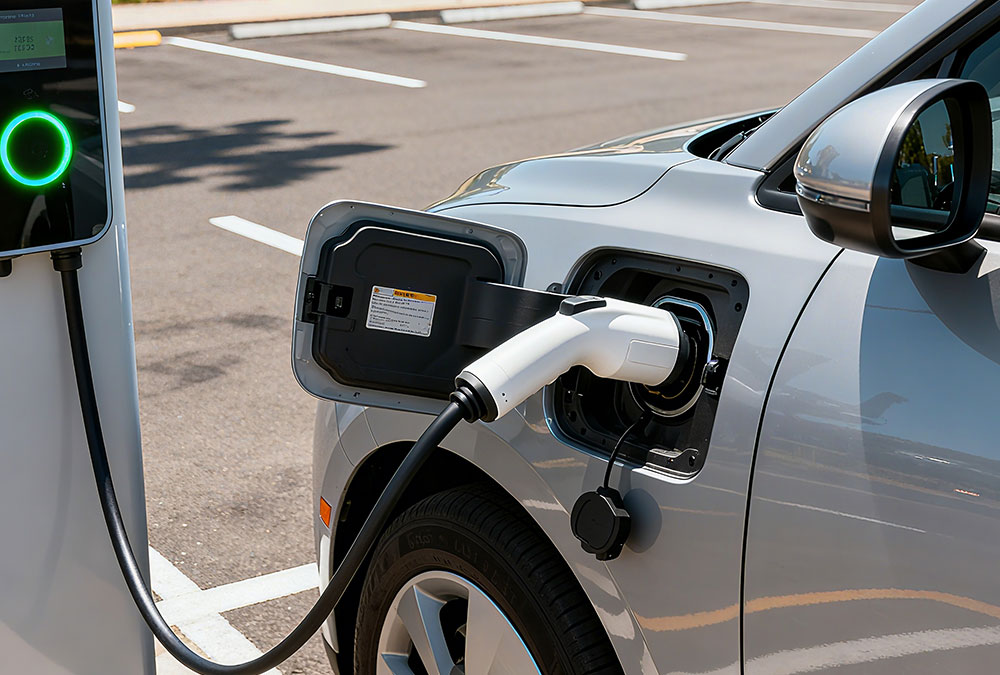
How to Reduce Your EV Charger Installation Cost
1. Tap into Government Incentives
Both federal and state governments offer programs to offset installation costs.
- U.S. Federal Tax Credit (IRC 30C): up to 30% of total installation cost, capped at $100,000 per site
- State Rebates: extra grants in states like California and New York
- Utility Incentives: many power companies provide rate discounts or cash-back programs
- EU AFIR Programs: for international businesses, the Alternative Fuels Infrastructure Regulation includes funding for highway DCFC networks
Combining these incentives can cut your total cost by 20–40%.
2. Partner with a Charging Network Operator
Want to avoid upfront costs altogether? Partner with a charging service provider.
These companies handle installation, maintenance, and operation — in exchange for a revenue-sharing agreement on charging sessions.
Tesla’s Supercharger Site Host Program is a prime example. Qualified locations host Superchargers, Tesla covers the build-out, and the business benefits from increased traffic and visibility.
3. Plan for Scale
If you’re building long-term, don’t think small. Installing four chargers now with capacity for ten later costs less than starting from scratch twice.
A long-term turnkey installation plan allows for better wiring design, transformer sizing, and lower total installation labor cost.
Why Installing EV Chargers Is a Smart Business Investment
Despite the upfront expense, the return on investment (ROI) of EV charging is strong — and getting stronger.
EV chargers increase customer dwell time by 40% or more in malls and restaurants. That means more spending while customers wait.
They also enhance your sustainability image, signaling commitment to clean energy and carbon neutrality — values that matter to consumers and corporate tenants alike.
Charging services themselves are becoming profitable. Businesses can charge per kWh or per minute, and in high-traffic areas, many reach payback within 3–5 years, followed by stable long-term revenue.
And as EV ownership keeps growing, having chargers on-site will soon be as essential as Wi-Fi or parking spaces. The early movers will win.
Real-World Cost Examples
| Project Type | Setup | Total Cost |
|---|---|---|
| Small Café | 2 Level 2 chargers | ≈ $15,000 |
| Shopping Mall | 10 Level 2 + 2 DC Fast Chargers | ≈ $250,000 |
| Gas Station Retrofit | 4 x 250kW DC Fast Chargers + transformer | ≈ $500,000 |
Bigger projects require higher electrical upgrades but deliver more capacity and stronger long-term profitability.
Where Commercial EV Charging Makes the Biggest Impact
- Office Buildings: employee convenience and corporate sustainability
- Apartments & Condos: solving overnight charging for residents
- Shopping Centers: extending dwell time and boosting sales
- Hotels & Resorts: attracting EV-driving travelers
- Supermarkets & Retail Chains: driving repeat visits
- Fuel Stations & Transit Hubs: future-proofing energy infrastructure
If your property has parking, you have potential revenue waiting to be unlocked.
Work with Professionals for Safe, Efficient Installation
Commercial EV charging projects require expertise in electrical design, civil works, networking, and compliance. Partnering with an experienced installer ensures quality, safety, and minimal disruption.
A professional EVSE provider handles everything — site surveys, load assessments, system design, permitting, installation, and maintenance — delivering a true turnkey EV charging solution.
Conclusion: EV Charging Is the New Business Essential
The cost to install a commercial EV charging station varies by project size and complexity, but the long-term benefits are undeniable.
EV charging infrastructure boosts your property’s value, builds customer loyalty, strengthens your brand, and opens new revenue channels.
With the right incentives and smart planning, you can build a future-ready charging network within your budget — and watch it pay for itself in the years ahead.
📞 Contact us today to get a free quote and a customized commercial EV charging plan. Start your move toward sustainable mobility — and smart business growth.
FAQ: Commercial EV Charging Installation & Cost
Q1: How much does it cost to install a commercial EV charging station in 2025?
In 2025, most commercial EV charging station installations cost between $10,000 and $75,000 per unit, depending on charger type, power output, and site preparation needs.
Q2: What’s the difference in installation cost between Level 2 and DC fast chargers?
A Level 2 EV charger usually costs $700–$5,000, while DC fast chargers range from $30,000–$75,000 per unit, with extra costs for transformers and grid upgrades.
Q3: Are there any government incentives or tax credits for EV charger installations?
Yes. In the U.S., businesses can claim up to 30% federal tax credit (up to $100,000) under IRC 30C, plus additional state and utility rebates depending on location.
Q4: How long is the payback period for commercial EV charging stations?
Most businesses see a 3–5 year ROI through usage fees, customer retention, and brand value increase, especially in high-traffic areas like shopping centers and hotels.
Q5: What factors influence the total EV charging infrastructure cost?
Main cost drivers include equipment type, electrical upgrades, installation labor, permits, and network management systems.

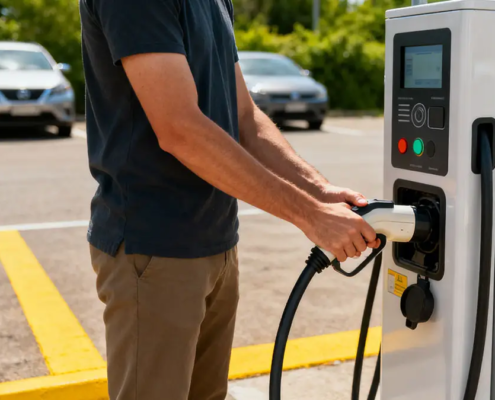
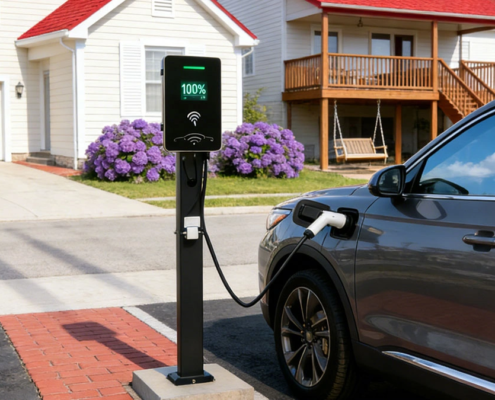
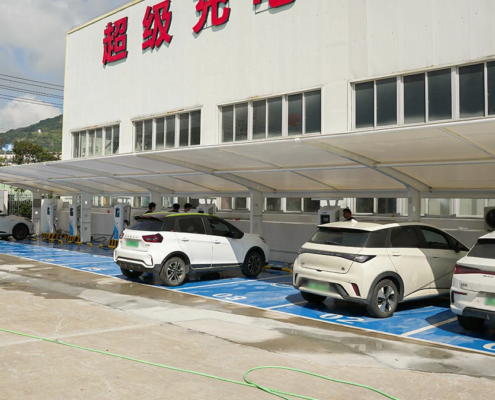



Leave a Reply
Want to join the discussion?Feel free to contribute!